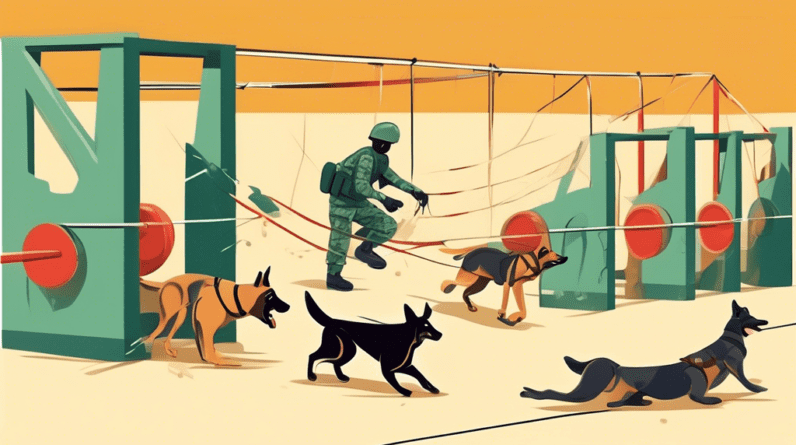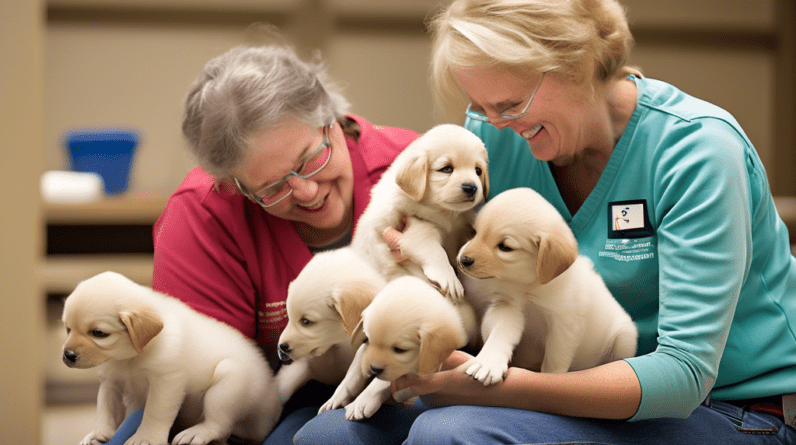
Strengthening Global Partnerships Through K9 Collaboration
The 52nd Security Forces Squadron recently played host to an international military working dog training event, welcoming canine teams and their handlers from around the globe. This collaborative training exercise underscores the critical role of military working dogs (MWDs) in global security efforts and fosters invaluable partnerships between allied nations.
The Importance of International Collaboration in K9 Training
In an increasingly complex security landscape, international cooperation is paramount. Military working dogs, with their exceptional detection abilities and unwavering loyalty, are vital assets in a wide range of operations, including:
- Narcotics and explosives detection
- Search and rescue missions
- Patrol and force protection
- Counterterrorism efforts
By training together, handlers and their canine partners from different countries develop a shared understanding of tactics, enhance interoperability, and build lasting relationships that extend beyond the training grounds. This exchange of knowledge and expertise proves invaluable in real-world scenarios where seamless coordination between international forces is essential.
A Glimpse into the Training
The international military working dog training hosted by the 52nd SFS offered a diverse and challenging curriculum designed to push both handlers and their K9 partners to their limits. Training scenarios simulated real-world situations, allowing teams to apply their skills in a controlled environment while receiving expert feedback from experienced instructors. Key aspects of the training included:
1. Obedience and Control
The foundation of any successful MWD team lies in impeccable obedience and control. Handlers and their dogs honed these skills through rigorous exercises focusing on:
- Heelwork: Maintaining precise positioning alongside the handler, even in distracting environments.
- Recall: Ensuring the dog responds reliably to the handler’s commands, even from a distance.
- Down-stays: Training the dog to remain in a specific position until released, crucial for controlled deployments.
2. Detection Work
Military working dogs are renowned for their exceptional olfactory senses, making them invaluable for detecting hidden threats. The training included specialized detection exercises covering:
- Explosives detection: Identifying various explosive materials, including improvised explosive devices (IEDs).
- Narcotics detection: Locating concealed drugs and contraband, supporting counter-narcotics operations.
3. Patrol and Security Operations
MWD teams are often deployed in patrol and security roles, safeguarding personnel and installations. Training scenarios in this area focused on:
- Building searches: Clearing structures efficiently and safely to locate potential threats or suspects.
- Open-area searches: Patrolling large outdoor spaces to detect and deter suspicious activity.
- Controlled aggression: Utilizing the dog’s protective instincts to apprehend suspects while maintaining control and following rules of engagement.
Benefits Beyond the Training Ground
The impact of international military working dog training extends far beyond the immediate skills acquired during the exercises.
- Strengthened Alliances: The training fosters camaraderie and trust between military personnel from different nations, laying the groundwork for stronger diplomatic and operational relationships.
- Enhanced Interoperability: By training together, MWD teams develop a common operational language and understanding, ensuring smoother collaboration during combined missions and exercises.
- Shared Best Practices: The exchange of knowledge and expertise allows participants to learn from each other’s experiences, refining tactics and techniques for greater effectiveness.
The 52nd SFS: Fostering Global K9 Excellence
The 52nd Security Forces Squadron’s role in hosting this international military working dog training event highlights their commitment to global security cooperation and their dedication to developing highly skilled MWD teams. This event exemplifies the power of collaboration in enhancing security capabilities and strengthening international partnerships. As the complexities of global security continue to evolve, events like these will remain crucial in ensuring the readiness and interoperability of military working dog teams worldwide. The lessons learned and bonds forged on the training ground will undoubtedly translate into increased effectiveness in real-world operations, safeguarding lives and contributing to a safer world.






